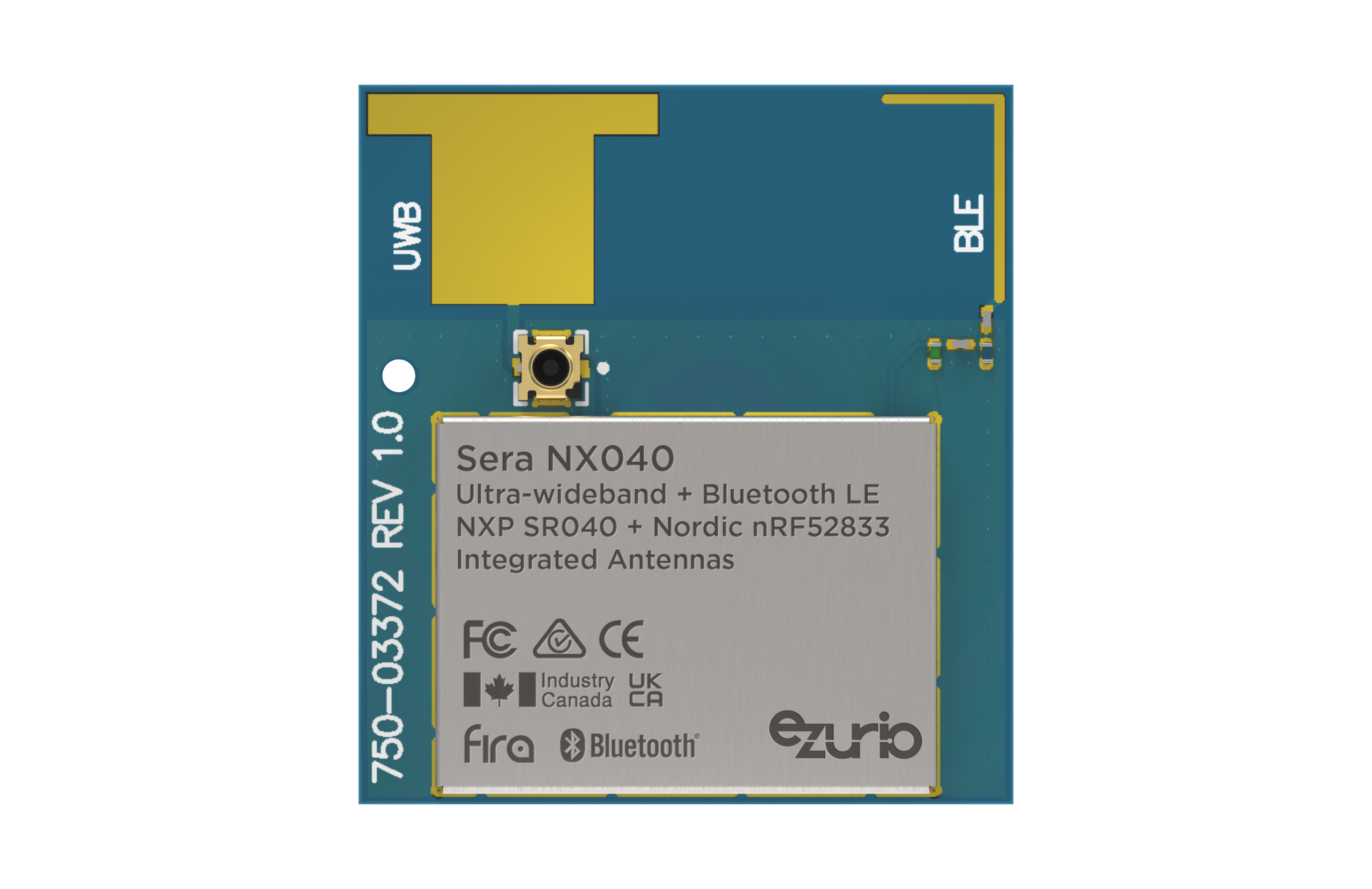No. The nRF Connect SDK is not supported as the SW interface to the NXP SR040 UWB device is not publicly available. The NX040 supports command/response AT Interface or Ezurio Canvas FW with MicroPython scripting for application development.

Browse Datasheets and Product Briefs in our Support & Documentation Center.
| Distributor | Part | In Stock | Region | Buy |
|---|---|---|---|---|
| Farnell | 453-00175C | 250 | Europe | Buy Now |
| Farnell | 453-00175C | 250 | Europe | Buy Now |
| Mouser Electronics | 453-00175C | 84 | North America | Buy Now |
| Future Electronics | 453-00175C | 0 | North America | Buy Now |
| Future Electronics | 453-00175C | 0 | Asia | Buy Now |
| Arrow Electronics | 453-00175C | 0 | North America | Buy Now |
| Future Electronics | 453-00175C | 0 | North America | Buy Now |
No. The nRF Connect SDK is not supported as the SW interface to the NXP SR040 UWB device is not publicly available. The NX040 supports command/response AT Interface or Ezurio Canvas FW with MicroPython scripting for application development.
The module works down to 1.8V and there are no technical issues with using a 1.8V power supply. However, designs may want to consider setting the lower voltage limit as 2.0V as it is possible that a UWB current spike could occur when the host or BLE radio is doing some other function which could potentially cause a brownout/reset on the UWB chip.
One of the NX040 UWB module power supply options is battery supply – limited peak current capability mode. This mode is typically reserved for tags who are considered Initiators. In a two-way ranging session, devices configured in a responder role are continuously listening in receive mode for an initiator. The current draw in receive mode is too high for a battery to support.
Similarly, in a 3D positioning setup, the device used as an anchor (responder) will need to be externally powered.
Tag (initiator) devices can run on a battery given they do not need to be listening for other devices.
At the time of writing there may be issues installing pyocd for Python 3.12. If you experience issues such as failing to build wheel for hidapi, try reverting to Python 3.10 or 3.11.
We have also seen issue where pyocd reports an error during install, requiring VS C++ build tools. Be sure to install the C++ build tools using the link in the error. If the C++ build tools install fail then try to temporarily disable virus checking (or consult with your IT department) as we have seen some antivirus block some VS scripts used during build tool installation.